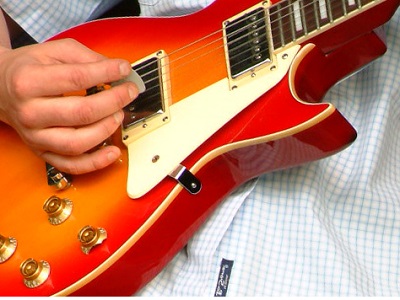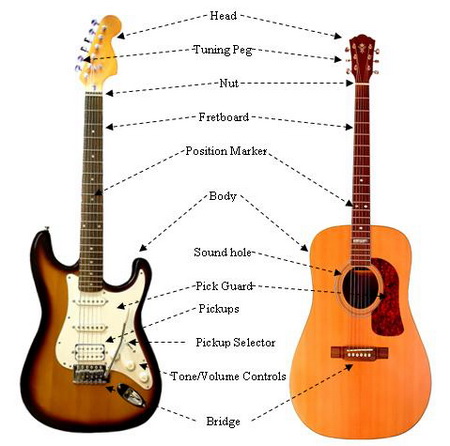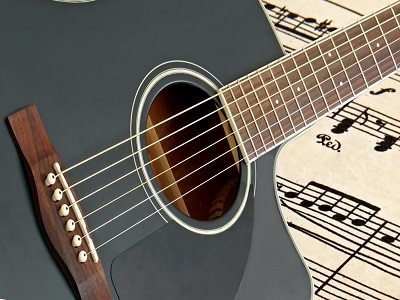5 Tips For Composing Guitar Solos
 Guitar solos are like our children; we nourish them, we watch them grow, and we take pride in their every movement. That being said, the goal of every guitarist is to write a guitar solo worthy of all that pride and joy.
Guitar solos are like our children; we nourish them, we watch them grow, and we take pride in their every movement. That being said, the goal of every guitarist is to write a guitar solo worthy of all that pride and joy.
In this article, we will give you some tips for building solos that will best display your personality and skillset.
Tip One: Calm Down
Before you even get into writing a solo, you need to relax.
Solos take time to write; rushing them will only make them sound bad. If you want a great solo, one that will make you proud, you need to let it flow. Don’t try shoving notes where they don’t belong; play what feels right when it feels right.
Tip Two: Subtlety Beats Extremism
Yes, it’s true; subtle solos win out.
If you feel the need to cram a thousand and seven notes into your solo, no one will want to listen to it. Likewise, if you stick all of the techniques you have ever learned into a flurry of notes and squeals, the listener will (a) lose interest afterwards, (b) not want to hear the jumble of noise, or (c) both a and b.
Throwing all of your techniques out at once means that the listener loses the reason to listen. After all of your techniques are used up, everything becomes stale and repetitive. The best way to keep your playing fresh is to build your guitar solo around a sole technique.
If you want to use legato, it’s okay to add a bit of sweeping or alternate picking, but make it a dynamic addition, not a focus point. If you do a legato section, followed by a sweeping section, followed by an alternate picking section, you just wasted the chance to focus on three different techniques in future solos.
Use your skills wisely; they may take a long time to build, but it only takes seconds for them to become boring to the listener.
Tip Three: Write the Solo to the Song
Never write a song based around a solo. This is a one-way ticket to a bad song.
If your entire song is focused on getting to the solo, your writing will lack. That is a fact. All of your writing will be focused on crafting the riffs around a section that, at most, lasts thirty seconds. This isn’t a case of the chicken or the egg; the song comes first every time. If not, your writing will lack.
Tip Four: Save Some Skills
Don’t show off everything at once.
Why?
If you went to a carnival, and every attraction went on all at once, what would you do? You wouldn’t me amazed—we promise you that—you would be confused and then disappointed because the show would be over with nothing left to display.
If you use all of your techniques at once in a solo, you are giving everything up that will ever catch your listener’s ear. You need to learn to spread out your learning.
For instance, if you have a solo with sweeping, don’t add eight more techniques, like legato and legato tapping and hybrid picking and alternate picking; save something for later. Use techniques that go well together, but don’t use all techniques just because they can fit together; if you try hard enough, almost anything could stick together.
Tip Five: Practice
If you don’t practice, you don’t write good solos.
Simple.
Practicing is the only way to learn way works and what doesn’t. If you don’t practice writing, you will never learn. Then you will be stuck wondering why the four (or maybe five) walls of your room are your only listeners. Set aside a block of time each day, sit down, and practice.
Put away your video games, laptop –anything that can be a distraction. Practice time is for practicing, not chatting or Facebooking. Keep that in mind; the harder you work, the further your solos will evolve.
Revolutionize The Way You Play And Learn Music
Guitar Pro 6 is a powerful tablature editor software for guitar, bass, and other fretted instruments. Equipped with a realistic audio engine, it makes writing music, guitar playing and learning songs a walk in the park. Click here to download Guitar Pro 6 instantly now…







Leave A Comment